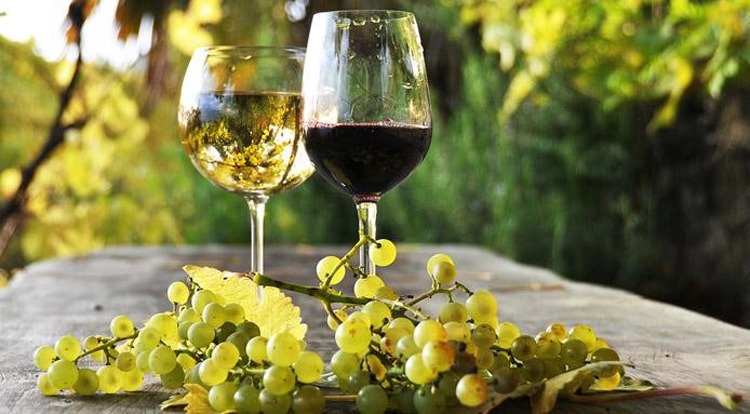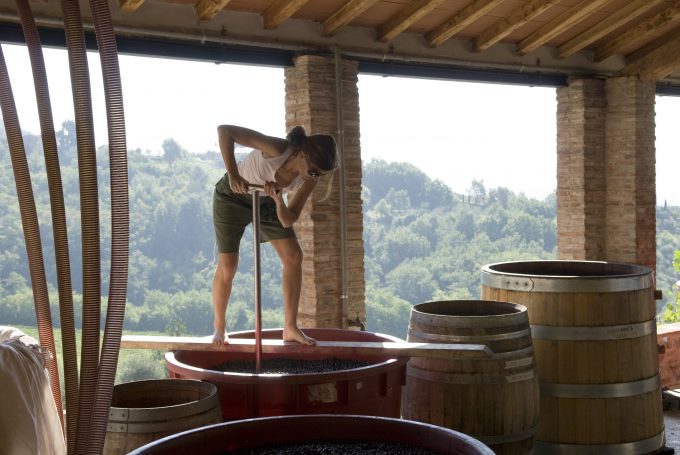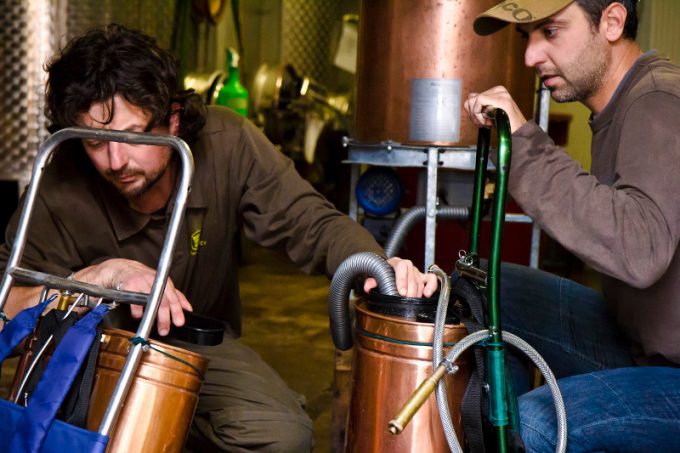Lucca has recently moved up the ranks on the Tuscan tourist trail as more and more people hear about its intact walls, its curious tree-topped tower and its epicurean specialties from tordelli lucchesi to buccellato. But the city—and the rolling hills surrounding it—is gaining fame for another reason, all to do with its wine.

Lucca’s Wines Are Quickly Rising to Fame
Whilst Tuscany has long been known as a key wine-producing region in Italy, the wines of the Lucca province have largely been overshadowed by household names like Chianti and the Super Tuscans of Bolgheri. One group of producers is working to change that: using biodynamic techniques, they’re producing exciting wines that are quickly becoming the talk of wine importers and restaurants in places like London, Copenhagen, and New York.
Biodynamic Farming
In 2013, thirteen wine producers from the Lucca region began an informal association that by 2016 would officially take shape as Lucca Biodinamica. Convinced that biodynamic farming was the best way to ensure the fertility of their soil and—most importantly—the quality of their wine, they came together to share experiences, promote the biodynamic approach and spread the word about the high-quality wines emerging from the hills of Lucca.
The Next Generation of Wine Producers
Seven of the now 16 producers are run by people under 40, suggesting that this isn’t a fad, but a fundamental shift likely to be increasingly adopted by the next generation of winemakers. And, true to the importance that biodynamic farming puts on biodiversity, the organisation includes not only wine producers but also those focused on olive oil, vegetables and honey.

Even a casual chat with these producers quickly reveals what’s different about this group. These are not big companies churning out dozens of wine types, each hardly distinguishable from the next, but rather individual, passionate producers, eager to create wine that reflects the land they work on daily.
Tenuta Valgiano
Laura Collobiano of Tenuta Valgiano paints an evocative picture of her wines, some of the most sought after in the region: when asked how they express the terroir she said, “The Lucca hills are smooth, gentle, silky. Our wines embrace these characteristics; every corner {of the land} would have attracted Van Gogh.” Like the soft scenery of the region, these wines go down easily, she suggested, pointing out their “huge drinkability.”
Poderi Concori
When asked what aspect of his work gives him the most satisfaction, Gabriele Del Prato of Podere Concori, a founding member of the Lucca Biodinamica, said, “…to see the public drinking your lands.” It’s clear that no matter what grape they’re made of (and the group showcases a wide range, from international grapes such as Sauvignon Blanc and Syrah to local varieties such as Vermentino and Sangiovese), these are not your bog-standard supermarket wines: instead, these wines ask you to sit up and take notice.

For wine lovers, Lucca Biodinamica’s launch has brought about a new opportunity to explore a wide variety of styles, grapes and stories behind what’s filling your glass, whilst being confident that what you’re drinking respects the environment and the people working it. The fact that this type of farming creates vineyards filled with life, means that Lucca Biodinamica’s members are also located in some of the most beautiful areas to visit in the region.
Fabbrica San Martino
As Giuseppe Ferrua from Fabbrica San Martino shared, “I’m proud of all my wines: they tell all about my work and their origin. They are the books in my library.” Judging from the wines that he and his Lucca Biodinamica colleagues are producing, it’s a library that many of us would happily spend many hours perusing.
Biodynamics: The basics
Biodynamic farming is about respecting the land and ensuring that farming is being done in an environmentally sustainable way. Biodynamic winemakers don’t use man-made chemicals but instead work using natural methods to create healthy ecosystems where plants, animals and people work together. The end results are wines that reflect the land that they’re grown on—its soil, its climate– and the plants themselves.
Read more about other places to see in the Lucca province like Montecarlo and Barga.
Copyright photo 1: italiaatavola.net
Copyright photo 2: theflorentine.net (Ph. courtesy of Tenuta di Valgiano)
Copyright photo 3: theflorentine.net (Ph. courtesy of Agricola Calafata)

